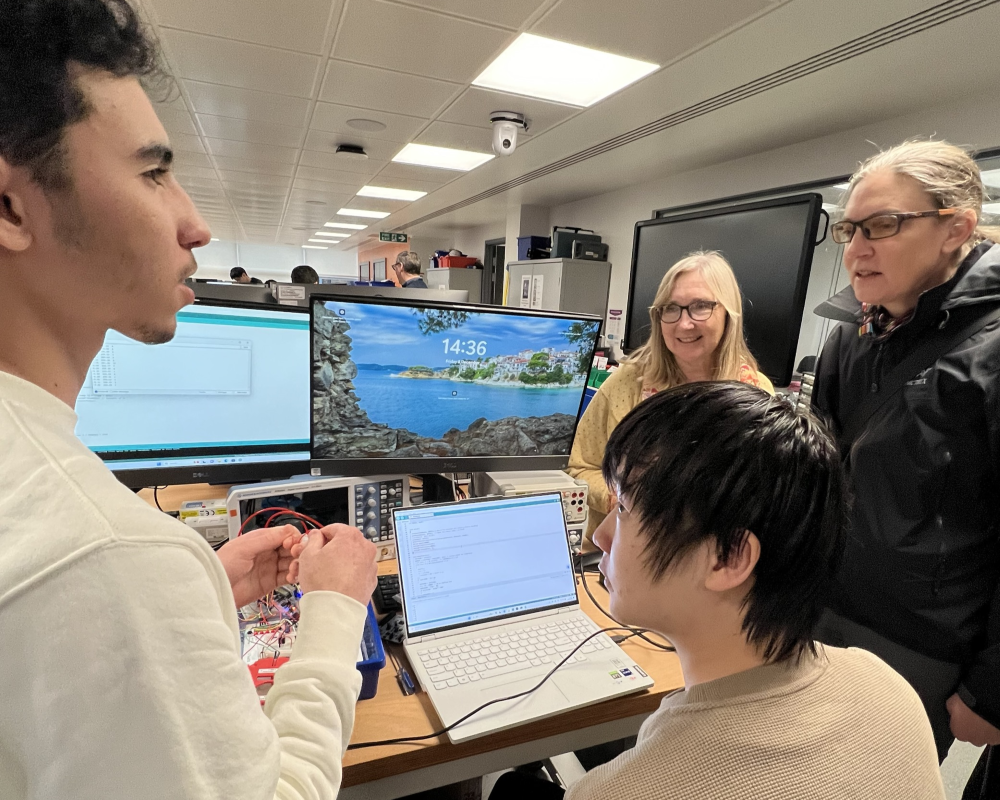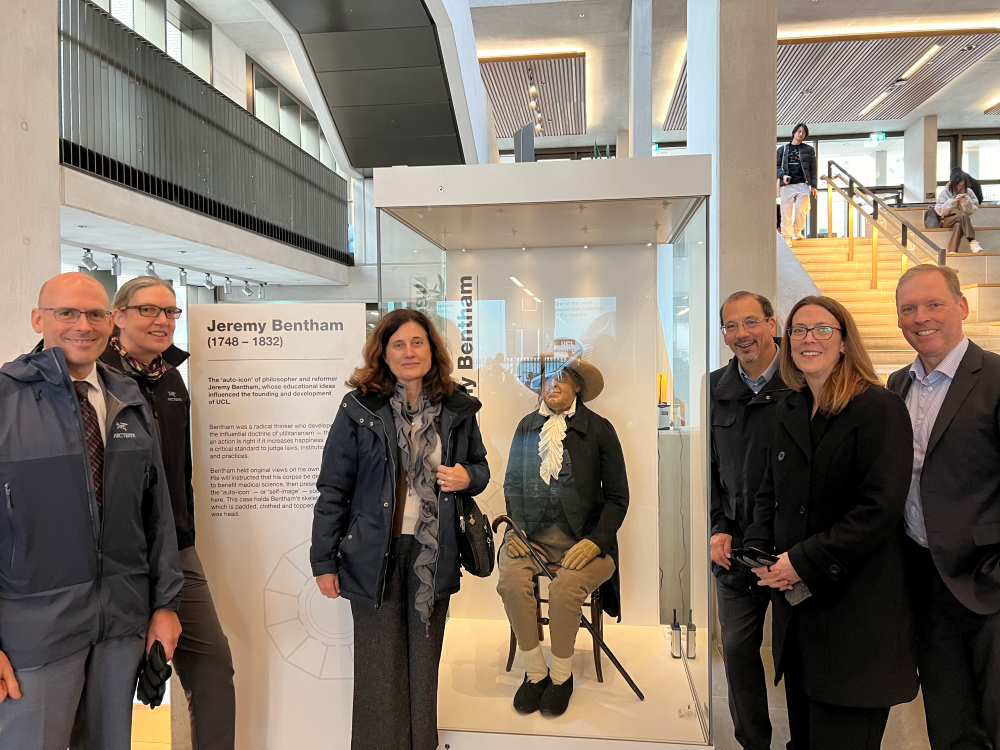
An ever-changing world needs ever-evolving engineers, and Smith Engineering continues to amplify its ability to train students to tackle complex global challenges.
Faculty educators are visiting key sites around the globe to see how other engineering schools are encouraging critical thought and cross-disciplinary approaches to their educational offerings.
Led by Mechanical and Materials Engineering head Keith Pilkey and Dupont Canada Chair in Engineering Education Research and Development Brian Frank, a contingent of academics from Smith Engineering traveled to the United Kingdom in December to meet with counterparts at University College London.
Named ‘University of the Year 2024’ by The Times and Sunday Times Good University Guide, and second in the UK for research power in the Research Excellence Framework 2021, University College London (UCL) is ranked 9th in the 2024 QS World University Rankings.
Innovative methods in the engineering faculty include a series of human-focused engineering challenges on “how to change the world”, first year mathematics using realistic scenarios as applications, and interdisciplinary design scenarios that illustrate what engineers do in practice.
In addition, the ‘Spring into STEM’ series of TED-style talks makes the work of the engineering faculty palpable and tangible to the local community, each topic matched to one of the UN Sustainable Development Goals (SDGs). Executive Education courses provide professional development opportunities that tackle complex global challenges directly, spanning subjects and industries as diverse as health, medicine, engineering and technology to business and law.
Smith Engineering’s Chair for Women in Engineering Heidi Ploeg — who participated in the site visit along with Pilkey, Frank, Dean Kevin Deluzio, Associate Dean (Academic) Marianna Kontopoulou, and Executive Director (Community & Strategic Priorities) Sarah Kauffman — noted the universal commitment to problem-based learning across all disciplines, as well as the investment in diversifying the profession.
“The instructors and students we spoke with seemed to share in a clear commitment to Equity, Diversity, and Inclusion,” she says.
Dean Deluzio recognized a universal resolve toward problem-based learning and prioritization of innovation for engineering education, and that the undertaking was achieved via extensive planning which involved participants from all departments and programs. “They recognize that problem-based learning is a tool that can improve learning by tapping into intrinsic motivation for students.”
